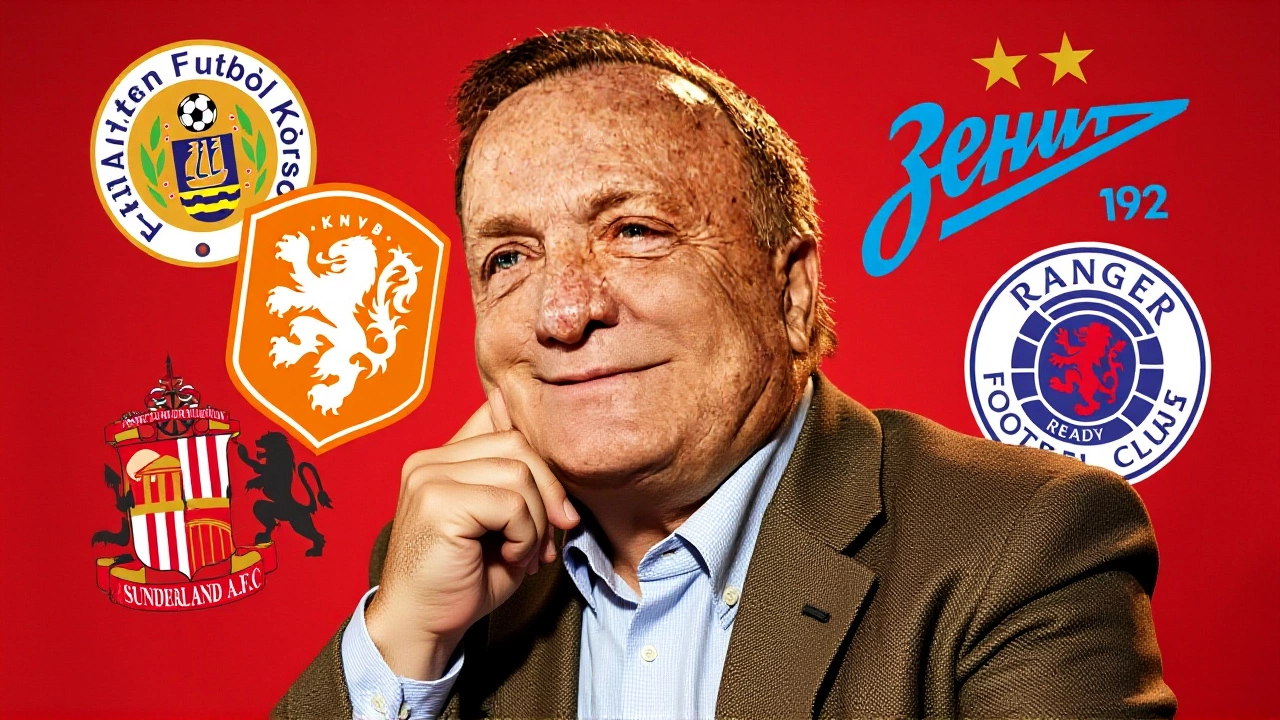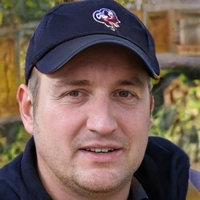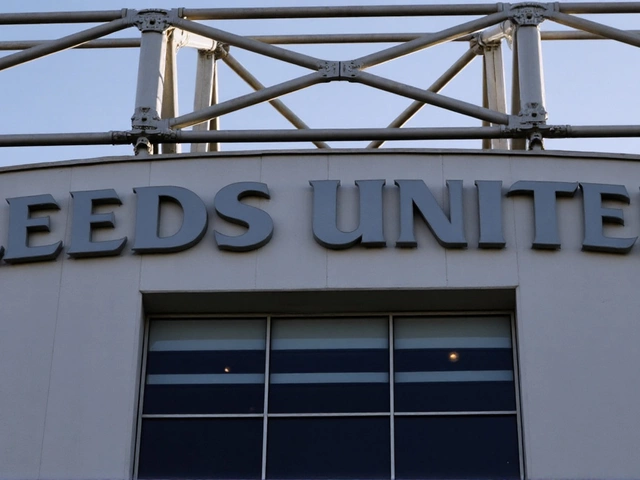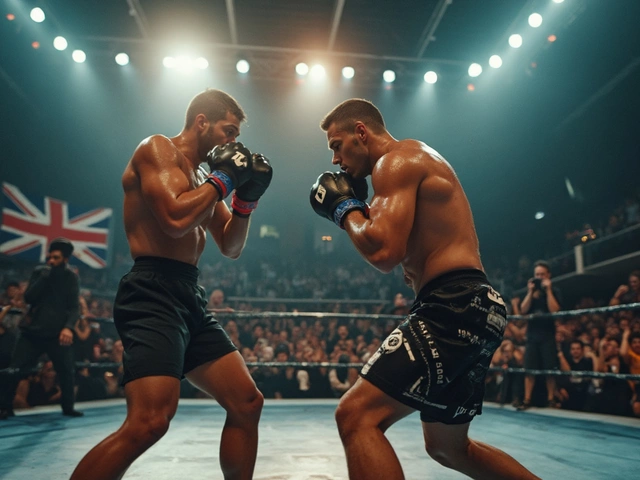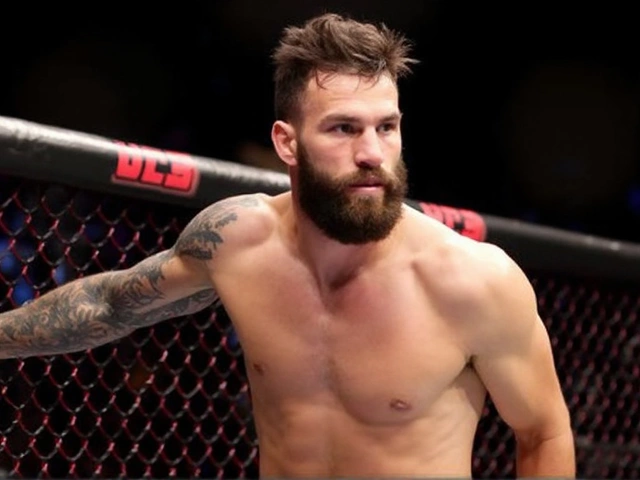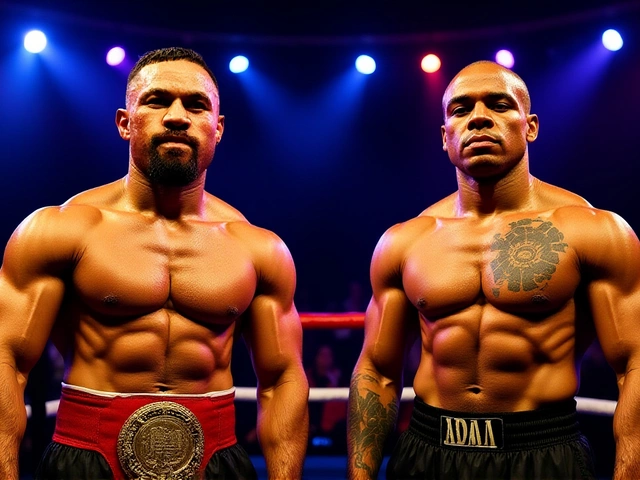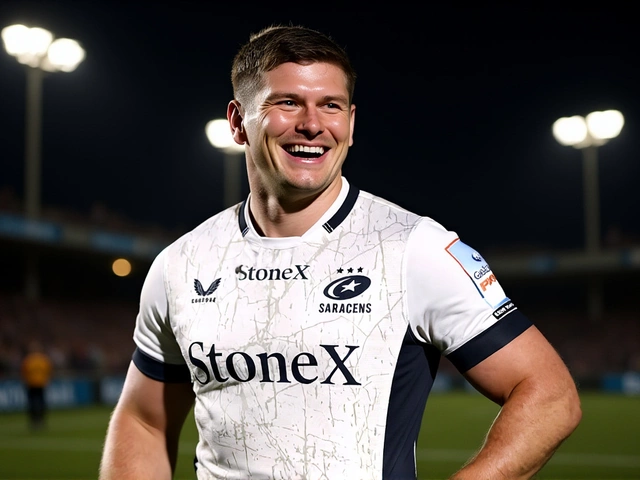At 78, Dick Advocaat isn’t just coaching — he’s rewriting history. On Tuesday night, Curaçao, a Caribbean island with fewer people than many English towns, punched its ticket to the 2026 FIFA World CupNorth America after a tense 1-1 draw with Jamaica. And behind the bench, in a navy blue tracksuit and that familiar steely gaze, stood Advocaat — the man who, at 78, will become the oldest manager ever to lead a team to the World Cup, shattering the record set by Germany’s Otto Rehhagel in 2010.
The Underdog That Defied Gravity
Curaçao’s qualification isn’t just a miracle — it’s a seismic shift in global football. With a population of just 160,000, the island has fewer residents than the seating capacity of many Premier League stadiums. Its national team has never won a major tournament. Its home stadium, Estadio Antonio Trenidat, holds barely 5,000 fans. Yet here they are: the smallest nation ever to qualify for a World Cup, thanks to a gritty, disciplined campaign under Advocaat’s leadership.They didn’t dominate possession. They didn’t score flashy goals. They won with organization, resilience, and a tactical discipline rarely seen at this level. In their final group match, trailing 1-0 against Jamaica, they equalized in the 82nd minute — a moment that sent the entire island into euphoria. "We didn’t believe it until the whistle," said midfielder Ricardo van Rhijn, a former Ajax academy product who returned home to play for Curaçao. "Now we know we belong."
Advocaat’s Unlikely Second Act
This isn’t Advocaat’s first rodeo. He’s managed the Netherlands national team three separate times — in 1998, 2002, and 2004. He’s coached South Korea to the 2002 World Cup semifinals, led Russia to Euro 2008, and even steered Rangers through their most turbulent financial period in the early 2000s.But this? This is different. In 2021, when he took over Curaçao, most assumed it was a retirement gig. A final paycheck before the rocking chair. Instead, he turned it into a mission. He spent months living in Willemstad, studying local talent, convincing diaspora players in the Netherlands and the U.S. to switch allegiances. He restructured youth development. He pushed for better training surfaces. He even negotiated a deal with a Dutch sports science lab to send remote performance data.
"He doesn’t just manage teams — he rebuilds them from the ground up," said former Rangers captain Barry Ferguson. "Back in 2000, he signed van Bronckhorst and Kanchelskis with no hesitation. Now, he’s doing the same with kids from Curaçao’s streets. The man has no fear of the impossible."
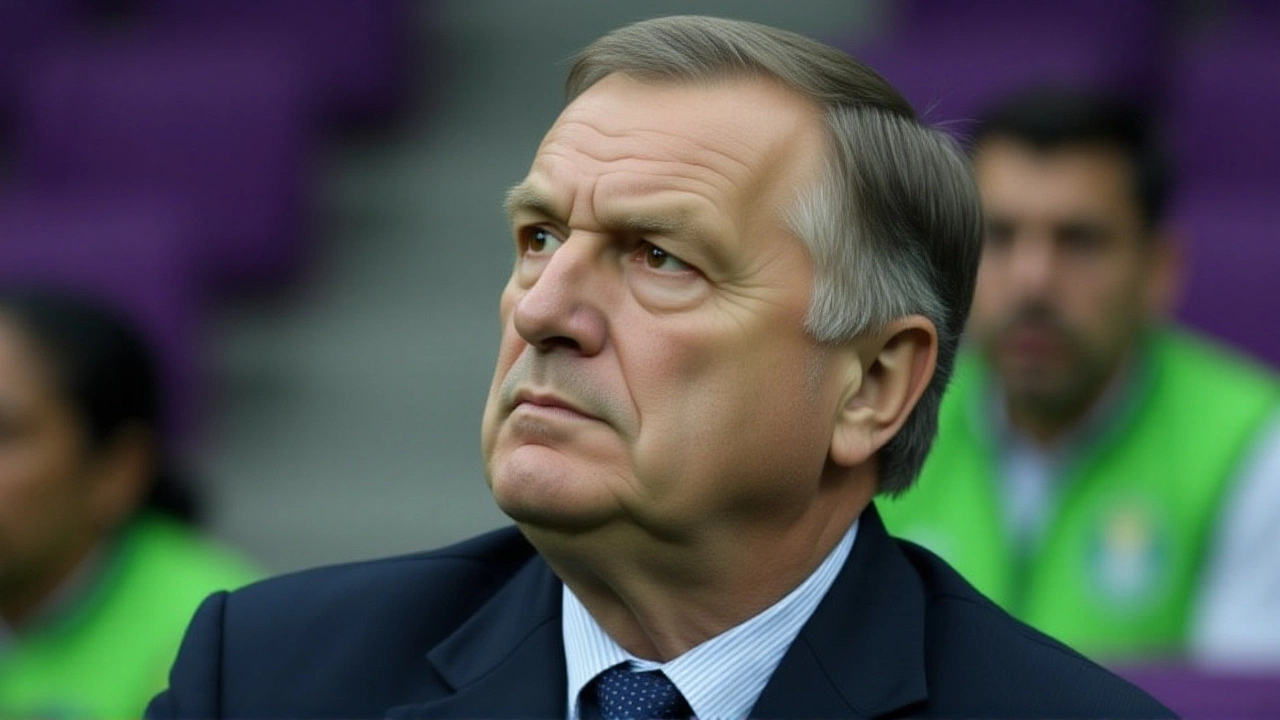
A Legacy Built on Resilience
Advocaat’s career hasn’t been without controversy. At Rangers, he famously called players "fat-necks" after a poor run in 2001, sparking media frenzy. His £12 million spending spree on Tore André Flo didn’t deliver a trophy. And when the club plunged into administration in 2012, his transfer decisions were scrutinized — though Advocaat maintained he acted in good faith. "I didn’t think the club would go bankrupt," he told reporters at the time. "I was trying to win."Now, decades later, those same traits — stubbornness, tactical clarity, an unwillingness to accept limits — are lifting Curaçao onto the world’s biggest stage. He’s not chasing legacy. He’s building it, one underdog victory at a time.
What Comes Next?
The 2026 FIFA World CupNorth America will be held across 16 cities in the U.S., Canada, and Mexico. Curaçao’s group stage opponents aren’t yet known, but they’ll face giants: Brazil, France, Spain — teams with budgets that dwarf Curaçao’s entire national football budget. Yet Advocaat isn’t intimidated. "We don’t need money to have heart," he said after the Jamaica match. "We have something they can’t buy."He’s already begun planning for the tournament — organizing friendlies against lower-ranked European sides, studying video footage of potential opponents, and even reaching out to former players he coached decades ago to serve as consultants. At 78, he’s not slowing down. He’s just getting started.

The Bigger Picture
Curaçao’s qualification isn’t just about one man or one team. It’s proof that football’s hierarchy is crumbling. In a world where money often dictates success, here’s a nation with no professional league, no youth academies worth naming, and a government budget that barely covers basic infrastructure — yet they’ve outlasted nations with ten times the population and a hundred times the resources.Advocaat’s story is a reminder that football isn’t about stadiums or salaries. It’s about belief. About stubbornness. About an old man with a clipboard, refusing to let the world tell him what’s possible.
Frequently Asked Questions
How did Curaçao qualify for the 2026 World Cup despite having such a small population?
Curaçao topped their CONCACAF qualifying group with 13 points from six matches, including a crucial 1-1 draw against Jamaica that sealed their spot. They relied on disciplined defense, strong set pieces, and a core of diaspora players based in the Netherlands and North America who chose to represent the island. Their qualification marks the first time a nation under 200,000 people has reached the World Cup.
What record is Dick Advocaat breaking, and who held it before?
Advocaat will break the record for oldest manager at a World Cup, surpassing Germany’s Otto Rehhagel, who was 71 years and 317 days old when he led Greece in their 2010 World Cup campaign. Advocaat, born on January 27, 1947, will be 78 years and 170 days old when the 2026 tournament begins — nearly seven years older than Rehhagel was at his final World Cup.
Why is Advocaat’s success with Curaçao considered his greatest achievement?
While Advocaat led the Netherlands to the 2004 Euros final and South Korea to the 2002 World Cup semis, those teams had professional leagues, established academies, and massive resources. Curaçao has none of that. His ability to turn a team with no domestic league into World Cup qualifiers — against all odds and with minimal funding — is seen as his most remarkable feat, even by those who followed his career for decades.
What impact could Curaçao’s qualification have on Caribbean football?
Curaçao’s success could trigger a ripple effect across the Caribbean. Nations like Suriname, Guyana, and the Dominican Republic may invest more in youth development and diaspora recruitment. FIFA has already signaled increased funding for CONCACAF’s smaller members. If Curaçao wins even one match in 2026, it could inspire a generation of players across the region to believe they, too, can compete on the world stage.
Has Advocaat ever managed a team this small before?
No. While Advocaat has coached national teams from Russia, Belgium, and the UAE — all with populations over 10 million — Curaçao is by far the smallest. He’s also never managed a team without a professional domestic league. His approach here is entirely new: prioritizing loyalty over star power, and tactical cohesion over individual talent. It’s a different kind of footballing philosophy, and it’s working.
What’s next for Dick Advocaat after the 2026 World Cup?
Advocaat has said he’ll step down after the tournament, but he’s already mentoring younger coaches in Curaçao’s football federation. He’s also helping design a national youth development plan to ensure the team’s success isn’t a one-off. Whether he officially retires or takes on an advisory role, his fingerprints on Caribbean football will last far beyond 2026.
